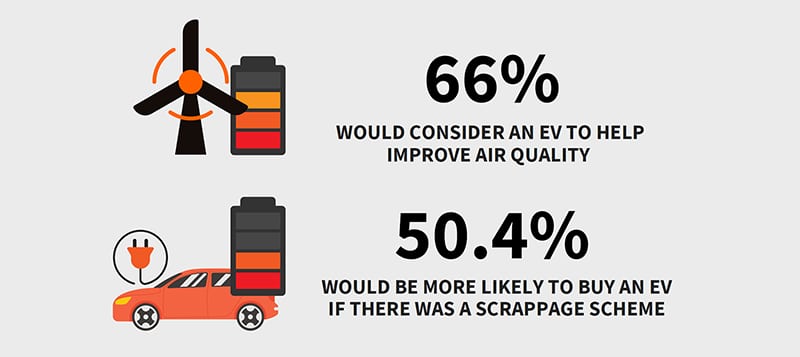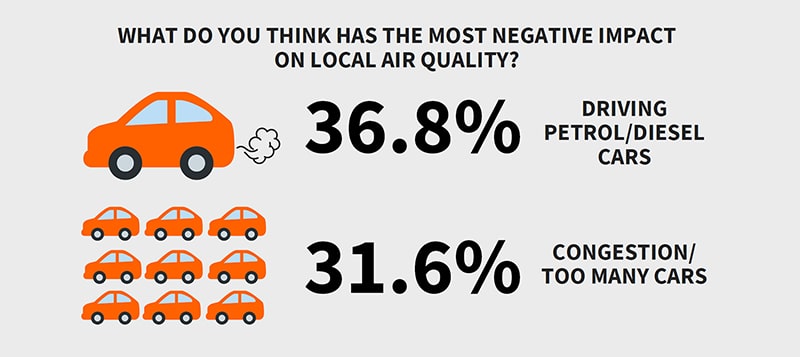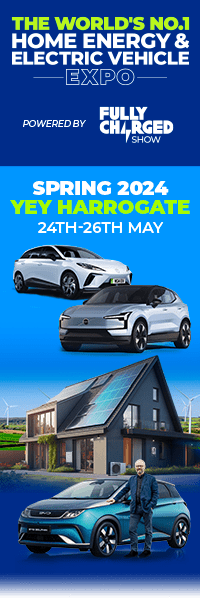
Image courtesy of EVClicks
It’s hard to say the coronavirus lockdown has had a raft of positives, but it has given us a once-in-a-lifetime opportunity – the chance to see what a cleaner and quieter society might look like.
During the lockdown I started running on a regular basis in a bid to keep my fitness up. I don’t particularly enjoy it, but group sports had to stop, and I had to do something.
On my daily jogs, one thing caught my attention aside from the fact that my running gear felt a lot more snug than I remember.
The streets were eerily devoid of moving cars. There were families on afternoon walks, children playing and couples enjoying an evening stroll, but no cars. If I didn’t know better, I could have entered the world of some bizarre Soviet Union propaganda poster.
You might question why I describe this experience as “eery” and “bizarre”, but this is the thing – most of us nowadays have never experienced a world without the humdrum of cars in the background. We’ve become so unbelievably good at tuning out the constant gurgle of petrol and diesel engines that we’re almost deaf to it.
But once I got over the initial shock, I started to enjoy it. I even began to look forward to my daily run and I never thought I’d say that. I wanted to enjoy the outside without inhaling toxic fumes or my own thoughts being interrupted by some awful dump valve on a Vauxhall Nova.
If you ask people whether they want less pollution and quieter neighbourhoods, they will answer “yes, of course”. Who wouldn’t? But better air quality and less noise pollution have always been quite abstract things for us to consider because we don’t really know what it’s like.
Most of us are oblivious or forget just how noisy and toxic our urban areas are. If it really was at the forefront of our minds you can bet the “school run” really would be a run and not a drive, for example, because we would want to avoid lots of cars being right outside our schools. Of course, everyday life gets in the way of these thoughts.

Many people are open to an electric car, but over half would get one sooner if there was an additional Government incentive
A new and shared experience
But lockdown has given us all the opportunity to experience what a cleaner and quieter environment might be like. It’s only been a brief glimpse, but a tantalising one.
As editor at Smart Home Charge, I was really keen to see if others had the same experience as me during lockdown. So, we conducted a mini survey. It’s not peer-review-level stuff, but a helpful indication of how people’s driving habits and attitudes may have changed during lockdown.
When asked about air quality, 72.5% said it was “very important” to them and another 97% said the lockdown had a “positive effect on local air quality”. Encouragingly, people do seem to grasp the effect of cars on their local environment with 68.4% pinpointing petrol/diesel vehicles and too many cars overall as the main culprits behind local air pollution.
But were they willing to do something about it?
Well, we asked survey respondents what they were most likely to do to help improve local air quality. Options included walking or cycling more (14.4% chose this), car sharing (2.1%), avoid driving into town (3.1%) and buying a plug-in hybrid (7.6%).
But the overwhelming majority (66%) said they would most likely get a fully electric car.
Our survey might not be a huge sample size, but even I was taken aback by the sheer number of people wanting to buy an electric car to help with air quality.
Furthermore, over half said they would either “definitely” or be “more likely” to buy an EV in the next year if the Government introduced a scrappage scheme for petrol and diesel vehicles.

Air quality was high on the agenda for survey respondents
A personal experience
Those stats are hugely encouraging. Sure, not everyone will follow up on their declarations and some may go back to pre-lockdown driving behaviour, but I am interested in attitudes.
Before lockdown, electric cars were gaining a lot of traction, but I’d say much of this is because they are genuinely good products now instead of just a statement of intent to do better environmentally.
Before I would avoid the environmental angle when discussing EVs with friends and family. It was far easier to talk about how good EVs were to drive, how they were more convenient and more cost effective to run.
That may sound like a brave statement to make on Fully Charged, but it can be hard work and a daunting prospect to convince people of the “green” benefits of EVs when they don’t really see a problem with their own petrol or diesel cars.
Again, it goes back to the notion that noisy, dirty cars are part of everyday life and that’s the way it is – we’re used to it and blind to the damaging effects.
But lockdown has changed that. Not entirely, but people have seen for themselves what the absence of loud, polluting cars can be like and the positive effects on our local environment let alone the climate.
What’s more, people liked it and that’s the key change for me. People have seen that EVs could benefit them and their family. I now don’t have to arrive armed with piles of data on why electric cars are cleaner and how they would make our urban areas a nicer place to be because we’ve all seen it, heard it and even smelled the difference for ourselves.
A personal experience of cleaner and quieter roads is much more powerful than trying to overwhelm someone with actual evidence. We need real data, of course, but let’s be honest – many people won’t choose an electric car because of data, but they will choose one based on their own positive experiences.
Lockdown means we’ve all glimpsed a future that is within reach if we want it to be and while electric cars are just one part of the solution, I hope society can exit the lockdown with more openness cleaner transport and energy than ever before.
About the author
Danny Morgan is editor at Smart Home Charge – a nationwide EV charge point installer and comparison site. He is passionate about the transition to cleaner technology and dedicated to making electric cars and EV charging simple and hassle free, regularly publishing news, guides and tips on the Smart Home Charge website and its YouTube channel.
Danny has over 14 years’ experience as a journalist and in marketing, working in industries as varied as interior design, animal health and now electric cars and charging infrastructure.
You can follow Danny and Smart Home Charge here: Twitter – @SmartHomeCharge, YouTube, Twitter, Instagram and LinkedIn.





